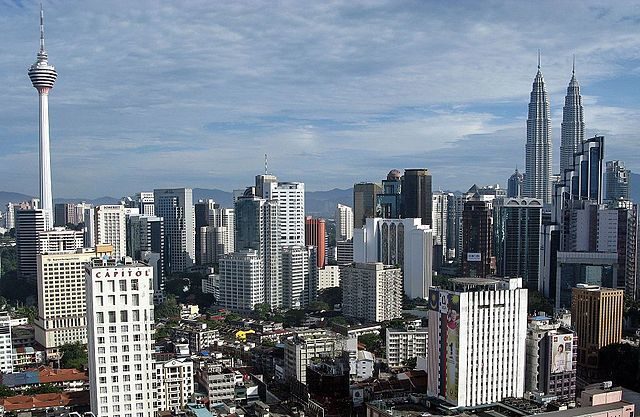The Malaysian economy continues to perform strongly, showing resilience in recent years despite external shocks and making progress toward achieving high-income status and improving inclusion, according to an annual assessment by the International Monetary Fund (IMF).
“Growth is running above potential, driven by strong global demand for electronics and improved terms of trade for commodities, such as oil and gas. On the domestic front, Malaysia’s strong employment is boosting private consumption, and investment is also helping to drive growth,” said the IMF country report released this month.
At 5.8%, real GDP growth has surprised on the upside in 2017, driven by domestic demand and robust exports. The current account surplus is estimated to increase to 2.8% of GDP, helped by strong exports.
Growth is projected to start to decelerate from its 2017 peak, remaining above potential at 5.3% in 2018, and converging to its potential rate of close to 5% in the medium term.
The current account surplus is expected to soften to 2.4% of GDP in 2018, as export growth normalizes.
The 11th Malaysia Plan, covering the years from 2016 to 2020, charts a path toward advanced economy status and greater inclusion.
Increasing productivity and encouraging more innovation are core objectives of the plan, which has six strategic pillars that touch on a range of development issues―including equity, inclusiveness, environmental sustainability, human capital development, and infrastructure.
The plan also puts significant emphasis on improving labor market outcomes and targets increases in labor’s share of income, female labor force participation, and skilled labor employment, as well as improvements in education quality and matching skills to industry needs.
Risks to the growth outlook are balanced, said IMF. On the external side, downside risks include a global retreat from cross-border integration, structurally weak growth in advanced economies, and a significant China slowdown.
Upside risks include a speedy approval and implementation of the Comprehensive and Progressive Agreement for Trans-Pacific Partnership (CPTPP) and possibly lingering strong global demand for electronics are upside risks.
The IMF Executive Board commended the authorities for the strong and resilient performance of the economy, underpinned by accommodative monetary policy and gradual fiscal consolidation. While growth will likely remain above potential in 2018, inflationary pressures appear contained, and risks to the outlook are balanced.
Going forward, the executive directors emphasized the importance of supporting economic growth while maintaining stability, as well as raising productivity through structural reform.
They also commended the authorities’ emphasis on raising productivity and investment and encouraged further labor market reforms.
“Priority should be given to measures that encourage female labor force participation, improve the quality of education, reduce skills mismatches, and bolster public infrastructure and the regulatory framework to further encourage private investment,” they said.
Photo: Miran Rijavec









